Managing Your Money
The resources on this page can help you manage your money more effectively. You can get answers to frequently asked questions about online banking, strategies for saving, cutting expenses, reducing costs, and more to get financial relief during difficult times.
MENU
- What do I do if I can’t pay all my bills on time?
- What are some options for getting cash in a pinch?
- Where can I find information on how to get financial relief through a loan, retirement plan or IRA distribution?
- I’m worried about the amount of debt I owe. How can I start to take control of my debt?
- Where can I find information or assistance regarding credit card debt relief?
- I am thinking about using my home equity to cover a financial crisis.Where can I find more information?
- Is there assistance to help me better understand healthcare debt I may owe to Tricare?
- Are there any resources available to help reduce the cost of telephone or internet charges?
- What should I do if I’m having trouble paying my student loans?
Visit our Taxes & Tax Preparation page to prepare for tax season and discover free opportunities to file your taxes.
As many Americans continue to struggle with the recent increased costs of living expenses such as insurance, gas, housing, insurance and more as well as possible furloughs or layoffs, assessing your financial situation, making decisions about your budget and prioritizing bills is an important first step. The Consumer Financial Protection Bureau has created several tools that may help.
When you can’t pay all your bills on time, this tool can help you prioritize which bills to pay first and helps you think through the impact of your choices.
You can also visit additional tips on ways to decrease spending and save money.
There are a variety of options, and all have pros and cons. Each individual situation is unique and supports, services and programs are subject to change rapidly. However, there are general rules to follow. Continue to check for federal, state and local options, including those in your community, as well for financial relief during these difficult times.
Generally, a retirement plan can distribute benefits only when certain events occur. Your summary plan description should clearly state when a distribution can be made. The plan document and summary description must also state whether the plan allows hardship distributions, early withdrawals or loans from your plan account.
Debt is any money you owe. Before you can make a plan for paying your debt, you first have to know who you owe money to and how much you owe. Use the CFPB’s debt log to list all your debts so that you can develop a debt action plan to pay down your debts and where to focus first.
The Consumer Financial Protection Bureau (CFPB) has prepared guidance regarding credit rights and responsibilities regarding credit card debt. These resources offer valuable guidance on effectively managing credit card debt and working towards achieving financial stability.
Learn more about options to help you with credit card debt.
The National Foundation for Credit Counseling® (NFCC) is one of the largest and longest serving nonprofit financial counseling organizations in the U.S. Their programs and services are accessed through their national network of nonprofit member agencies. Each agency is staffed by NFCC Certified Financial Counselors. NFCC Certified Financial Counselors are trained to provide credit counseling sessions to address serious repayment issues involving credit card debt, home-related debt and student loans. Working with a nonprofit NFCC member agency, they may help you determine if you might be eligible for a Debt Management Plan to provide affordable payment terms and, in some cases, an extended payment timeline.
Professional certified financial counselors and coaches are available through the Association for Financial Counseling & Planning Education® (AFCPE) to help you manage financial challenges you might be facing. These financial professionals are available nationwide to offer you trustworthy virtual financial counseling or coaching sessions. AFCPE counselors and coaches can help with determining which bills to pay first and which payments can be deferred without getting penalized, as well as building a plan to help you pay off your debt and creating strategies to avoid debt in the future.
Home equity loans have lower interest rates than many other loans, which makes them a viable option for homeowners. A home equity loan can be a good option for consolidating debt, but borrowers may need to assess if they have a healthy amount of equity in their home as well as good credit scores to qualify for these loans.
A Home Equity Line of Credit (HELOC) is a flexible financial tool that allows homeowners to borrow against the equity in their home. It operates similarly to a credit card, where borrowers can access funds as needed, up to a pre-determined credit limit, and repay the borrowed amount with interest over time.
With either option you need to assess the associated costs and fees and shop around to compare options before signing any paperwork.
The Consumer Financial Protection Bureau (CFPB) provides information for those who may be considering refinancing their mortgage or taking out a home equity loan to deal with increased expenses, a loss of income or for any other reason. While using home equity may be a good option for some consumers, it may put others at increased financial risk down the road. If your finances don’t recover as quickly as expected, or your home loses value and you have difficulty paying your loan, you could lose your home to foreclosure.
If you are being treated for chronic, high risk, catastrophic or terminal illness, you can get case management services at no cost through Tricare eligibility. Case managers can help you figure out complex health care and support system issues.
There are a few options to assist with reducing your internet and telephone charges.
Lifeline is a federal program to help make communications services more affordable for eligible consumers. This benefit provides eligible consumers with a monthly discount of up to $9.25. Consumers living on Tribal lands are eligible for an enhanced discount of up to $34.25 per month.
You can only use Lifeline for either phone or internet, but not both, the Federal Communications Commission (FCC) rules prohibit more than one Lifeline service per household. You may be eligible to get Lifeline based on your income or participation in a government assistance program.
There are additional programs through government and service providers to help make service more affordable, as well as resources and tips for improving at-home connectivity.
Visit our Student Loans page to learn important information about paying your student loans or qualifying for a student loan discharge.
Using online and mobile banking, allows you to access your bank account and pay bills online providing you with seamless access to your finances. With online banking, you can manage your accounts through a web browser on your computer or laptop. Similarly, mobile banking offers the same convenience through a dedicated app on your smartphone or tablet. Together these platforms empower you to check your account balances, review transaction history, transfer money, deposit checksand even pay bills without having to visit a physical branch.
Many banks offer ways to open bank accounts remotely – online or through a mobile app – without going to a bank branch. FDIC created a short video that shows you how to open an account online. The FDIC BankFind tool helps you locate FDIC-insured banks in your area. Some banks and credit unions are part of a coalition known as “Bank On.” These banks have low-fee affordable banking options.
Review your monthly expenses by using a spending tracker or developing a spending plan to see if you can identify additional expenses that can be cut.
The Consumer Financial Protection Bureau has developed the document, Cutting Expenses, as part of its Your Money, Your Goals financial empowerment toolkit. This tips and strategies in this document may spark ideas on how to cut costs and reduce expenses to cover daily necessities.
The Pennsylvania Assistive Technology Foundation (PATF) developed a financial education booklet, Cents and Sensibility: A Guide to Money Management, to help individuals with disabilities, or anyone, increase their money management skills.
Saving can start with just a few simple changes to your spending. Visit Better Money Habits for a few tips on ways to save money on your everyday expenses, like groceries, transportation, and entertainment.
Planning weekly menus and creating a shopping list is one easy way to save money! Learn how to plan ahead and create a weekly menu and food shopping list to potentially save money by limiting trips to the grocery store and cutting down on impulse buying.
Saving several months’ worth of living expenses to build a larger emergency fund can be much more intimidating, especially when it feels like your available cash is already accounted for each month. Visit Better Money Habits for tips on how to jump-start your emergency fund.
If your savings plan is more long-term, unlock the potential of your financial dreams with this savings plan tool to craft a blueprint for your long-term savings.
There is no need to be a money expert to provide your children with tips and activities that can help their money skills, habits and attitudes grow. Games can be powerful teaching tools. With these interactive games, you can build kids’ money management skills at home. These free activities and games are based on research about how money skills are developed during childhood.
View More Resources
The Financial Resilience Center was developed by National Disability Institute with generous funding from the Wells Fargo Foundation.




